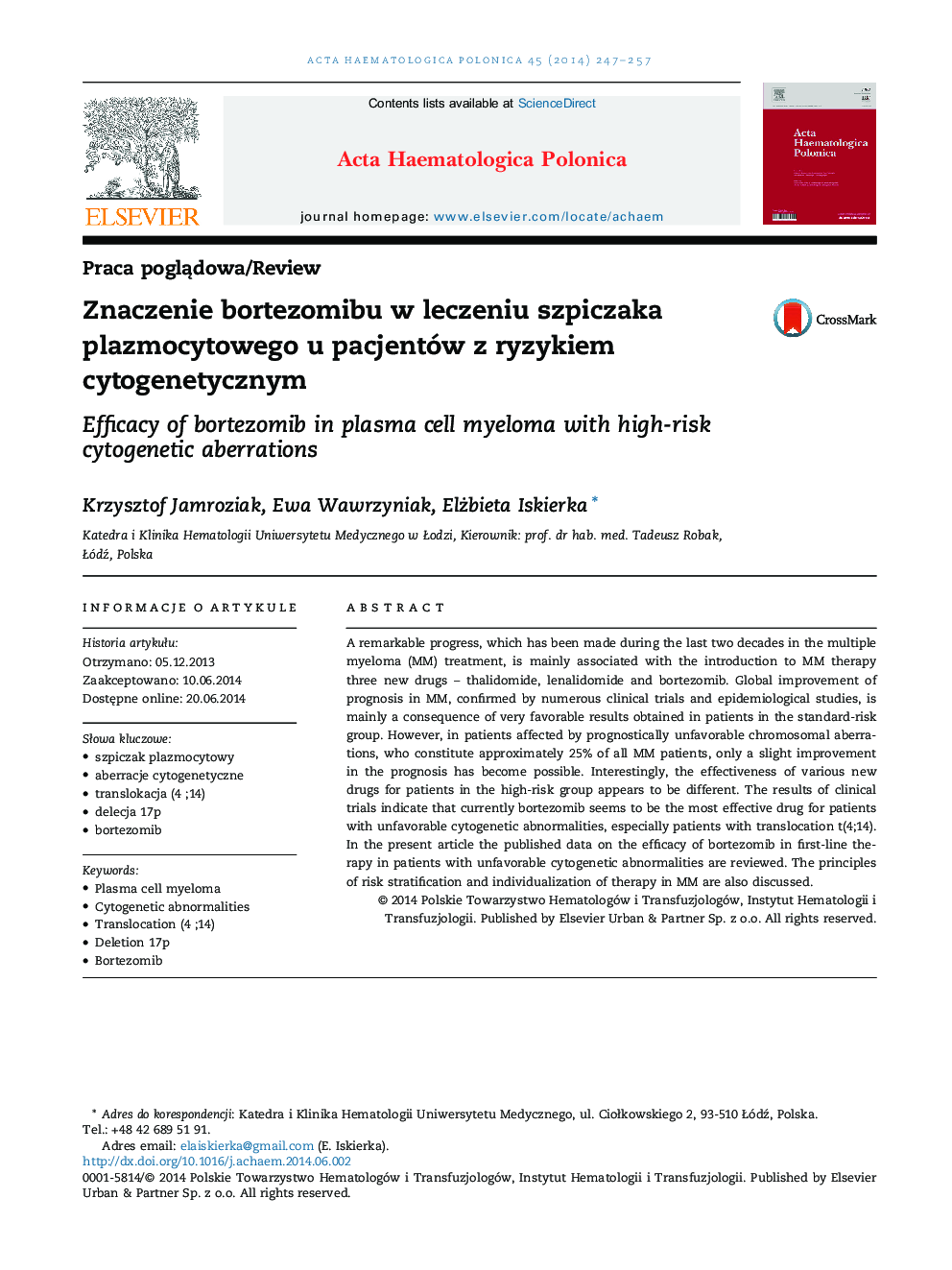| Article ID | Journal | Published Year | Pages | File Type |
|---|---|---|---|---|
| 3328156 | Acta Haematologica Polonica | 2014 | 11 Pages |
Abstract
A remarkable progress, which has been made during the last two decades in the multiple myeloma (MM) treatment, is mainly associated with the introduction to MM therapy three new drugs - thalidomide, lenalidomide and bortezomib. Global improvement of prognosis in MM, confirmed by numerous clinical trials and epidemiological studies, is mainly a consequence of very favorable results obtained in patients in the standard-risk group. However, in patients affected by prognostically unfavorable chromosomal aberrations, who constitute approximately 25% of all MM patients, only a slight improvement in the prognosis has become possible. Interestingly, the effectiveness of various new drugs for patients in the high-risk group appears to be different. The results of clinical trials indicate that currently bortezomib seems to be the most effective drug for patients with unfavorable cytogenetic abnormalities, especially patients with translocation t(4;14). In the present article the published data on the efficacy of bortezomib in first-line therapy in patients with unfavorable cytogenetic abnormalities are reviewed. The principles of risk stratification and individualization of therapy in MM are also discussed.
Related Topics
Life Sciences
Immunology and Microbiology
Immunology
Authors
Krzysztof Jamroziak, Ewa Wawrzyniak, Elżbieta Iskierka,
